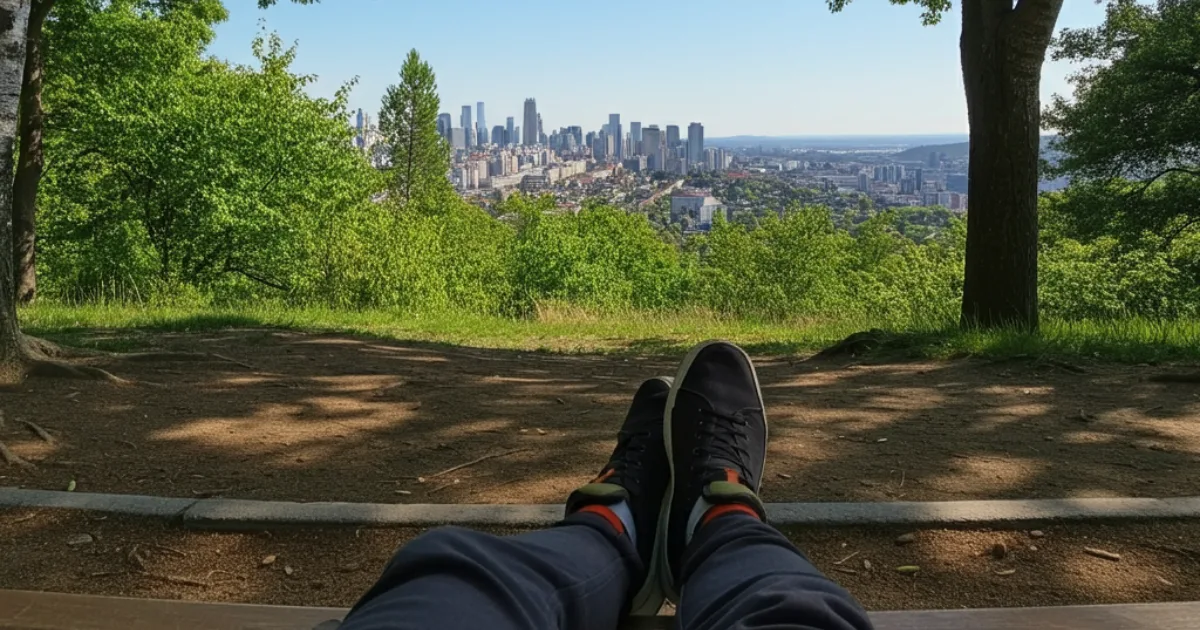Life often pulls us in multiple directions, urging us to react instantly to every situation. But here’s a game-changer: what if you chose to observe instead of react? The saying “learn to sit back and observe, not everything needs…” has gained traction for a reason. It teaches us that stepping back and watching carefully before acting can be one of the smartest moves you make. This blog dives into why observation is such a powerful skill and how you can hone it to tackle life with clarity and grace.
The Power of Observation
Every day, countless moments call for our attention, from heated arguments to quick decision-making at work. Our instinct is often to jump in, react, explain, or fix. But what if, instead of reacting impulsively, you paused to observe?
Observing is about understanding a situation deeply before rushing into action. It’s seeing the bigger picture, noticing the details others might miss, and taking the time to process what’s truly at play. When you observe, you position yourself to respond more thoughtfully and effectively.
Why Sitting Back Can Be Transformative
Reduced Stress
Have you ever noticed how reacting immediately often makes stress worse? Take a conflict at work as an example. Jumping to conclusions can escalate tension, while sitting back and observing gives you time to breathe and see the issue with fresh eyes. When you delay that knee-jerk reaction, stress tends to melt away.
Better Decision-Making
Looking before you leap isn’t just a proverb; it’s an essential life skill. Observation keeps you from making rash decisions based on incomplete information. Whether it’s a career move or a personal relationship, taking the time to observe allows you to assess your options and make better choices in the long term.
Improved Relationships
Observation also deepens your empathy and understanding of others. Instead of reacting to someone’s words, you’re more likely to consider their perspective, tone, and intent. This can lead to more meaningful conversations and healthier connections.
How to Cultivate Observation Skills
Observation doesn’t always come naturally, but the good news is it can be nurtured with practice. Here’s how you can improve your ability to sit back and observe.
1. Practice Mindful Listening
Instead of planning your response while someone is talking, focus entirely on what they’re saying. Notice their words, tone, and body language. Pay attention to what’s said and what’s left unspoken.
Example: The next time a friend vents to you about their bad day, resist offering advice right away. Just listen. Ask questions if needed, but focus on truly hearing them.
2. Develop a Daily Reflection Habit
Spend five minutes at the end of the day reflecting on situations where you could have observed more. What happened during a heated discussion? What did you miss because you reacted too quickly? Journaling these thoughts can help you become more self-aware over time.
3. Use the Pause-Count-React Method
Before you react to something that triggers you, pause for a few seconds. Count to five or ten if needed. This small gap between stimulus and response allows your mind to observe the situation instead of jumping to conclusions.
Example: Receiving a frustrating email at work? Pause. Read it again. Consider the sender’s intent and whether your initial reaction is the best course of action.
4. Observe Your Environment
Set aside time daily to deliberately observe what’s around you. Notice people’s behaviors, the sounds in your space, or even the patterns in nature. The more you train your mind to notice details, the better it becomes at observing complex situations.
5. Cultivate Emotional Awareness
Reacting often stems from unchecked emotions like anger or insecurity. Next time you feel triggered, acknowledge the emotion, but don’t act on it immediately. Label your emotions (e.g., “I feel frustrated”) and note how they influence your thoughts. Emotional awareness is a key step toward becoming a better observer.
Real-Life Scenarios Where Observation Wins
Workplace Conflicts
Imagine your team is heatedly debating a decision, and you feel tempted to jump in. An observant person might sit back, watch the dynamic, and determine the best moment to speak. Maybe you point out a perspective everyone else missed or steer the conversation in a constructive direction. Either way, you’ve added value through thoughtful insight.
Parenting Challenges
When a child throws a tantrum, a reactive parent might scold immediately. Instead, an observant parent would pause, notice triggers for the behavior, and guide the child calmly, teaching them an important life lesson in turn.
Social Gatherings
Ever noticed how some people thrive in social settings? It’s not always because they’re extroverts. Many are skilled observers, adept at reading the mood, understanding group dynamics, and knowing the right time to engage or step back.
Start Adopting an Observer Mindset
Learning to observe isn’t about withdrawing from life; it’s about engaging with it more meaningfully. By pausing, watching, and understanding before acting, you’ll not only make better decisions but also create a sense of calm and confidence in your life.
Start small. Practice pausing in your daily interactions, notice how it changes your perspective, and refine your responses. A less reactive, more observant version of you is just a step away.
Take up the challenge today and try one observation technique from the methods above. The results may just surprise you!


